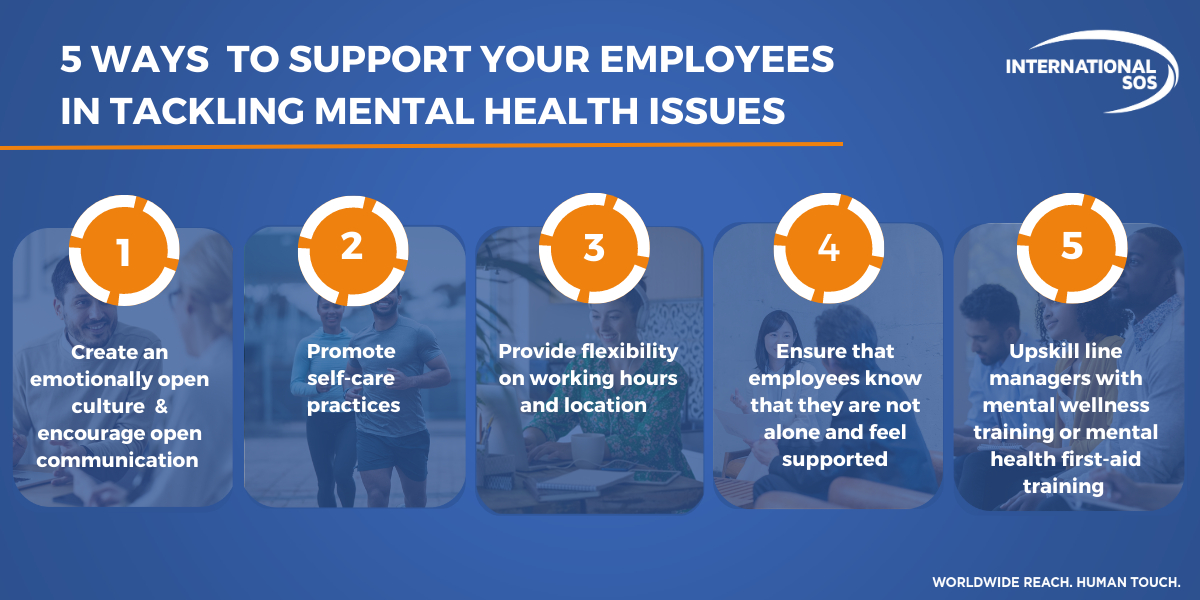To support employee well-being, businesses can offer mental health resources and encourage regular physical activity. Flexible work arrangements also contribute significantly to overall wellness.
Employee well-being is a critical factor in the success of any business. It improves productivity, fosters employee engagement, and reduces absenteeism. In today’s fast-paced work environment, companies are recognizing the importance of their workforce’s mental and physical health. Providing a supportive atmosphere that revolves around the well-being of employees is not a luxury but a strategic imperative.
By investing in comprehensive health benefits, creating a culture of wellness that includes stress management programs, and ensuring a healthy work-life balance, companies can build a robust foundation for employee satisfaction and loyalty. Prioritizing the health and happiness of employees not only benefits the individual but also strengthens team cohesion and the company’s bottom line.
The Importance Of Employee Well-being
Supporting employee well-being is vital for a thriving business. A well-supported workforce tends to be more productive and loyal. Employees with access to well-being programs often show improved focus and efficiency. This, in turn, can lead to better overall performance for the company. Companies that prioritize their employees’ mental and physical health see a positive impact on their bottom line.
Encouraging a healthy work-life balance is key. Healthier employees are typically happier and more motivated. This can lead to lower turnover rates and reduce the costs related to hiring and training new staff. Teams with high well-being are also more likely to be creative and innovative. Such an atmosphere contributes to a stronger, more positive workplace culture.
Assessing Current Well-being Initiatives
Assessing current employee well-being initiatives requires an understanding of their impact. To measure this, businesses use varied tools and methods. Regularly conducting employee surveys helps gather insights on their mental and physical health. Using anonymous suggestion boxes allows for honest feedback. Analyzing health and wellness program participation rates can indicate initiative effectiveness. It is critical to note changes in employee turnover and absenteeism rates, as they often reflect overall well-being. Having a feedback-friendly culture ensures employees feel valued and heard.
Flexible Work Arrangements
Flexible work arrangements play a significant role in employee well-being. Offering remote work options allows employees to craft a work-life balance that suits their personal needs. Such policies demonstrate a company’s commitment to the diverse lifestyles of its workforce.
By blending traditional office settings with the possibility to work from home, employees enjoy the best of both worlds. This hybrid approach recognizes that some individuals thrive in the office, while others produce their best work in the comfort of their own homes. Embracing remote work not only leads to happier employees but often results in increased productivity and loyalty.
| Work Arrangement Type | Benefits |
|---|---|
| Office-based | Structured environment, team collaboration |
| Remote Work | Flexibility, no commute, work-life balance |
- Respect personal circumstances by tailoring work schedules to individual needs.
- Support well-being with choices that align with employees’ daily lives.
- Enable focus on health, family, and passions outside of work.

Credit: www.businessblogshub.com
Mental Health Support Structures
Employee well-being is vital for a healthy workplace. Providing counseling services helps staff deal with personal and professional issues. Accessible mental health resources can make all the difference. They offer support and confidential assistance.
Stress management workshops are another key element. These sessions teach effective coping strategies. With the right tools, employees can handle work pressures better. These workshops aim to improve overall mental health in your company.
Physical Health And Workplace Environment
Prioritizing ergonomics boosts employee health. Comfortable workspaces reduce strain and prevent injury. Ergonomic chairs and desks support correct posture. Adjusting screens to eye level lessens neck pain.
Offering fitness programs encourages physical activity. Partner with local gyms for discounts. Host on-site yoga or pilates classes. Promote walking meetings for fresh air and movement. Presenting healthy eating options in the cafeteria benefits employees. Stock vending machines with snacks like nuts and fruit. Provide water stations to keep everyone hydrated.
Fostering A Culture Of Inclusivity And Support
Supporting employee well-being is crucial for a thriving business. Team-building activities enhance workplace relationships and morale. Organize fun retreats to show your team they matter.
Reward systems should celebrate both small wins and big achievements. Public recognition boosts confidence and encourages others to aim high. Tailoring rewards to individual interests shows true appreciation.
Continued Education And Personal Growth Opportunities
Supporting employee well-being is pivotal for a thriving workplace. Businesses can foster this by offering professional development programs. These programs provide staff with chances to sharpen skills and gain knowledge. This commitment to professional growth shows that a company values its team.
Providing career progression pathways is also key. Employees can see a clear future within the company. This motivates them to stay and grow. It also makes them feel recognized and valued. Lifelong learning is a journey that should intertwine with an employee’s career. It boosts job satisfaction and productivity.

Credit: business.calm.com
Financial Wellness And Security
Ensuring fair compensation and robust benefits is crucial for employee well-being. These financial supports show employees they are valued. Team members enjoy peace of mind with competitive salaries and comprehensive benefits. This approach boosts morale and commitment to the company.
Retirement planning assistance and financial advising offer long-term stability. These services empower employees to make wise financial decisions. With this support, they can build a secure future. A company that invests in its employees’ futures fosters a loyal and focused workforce.
Regular Check-ins And Continuous Improvement
Regular check-ins are key for tracking employee satisfaction and well-being. Scheduling consistent performance reviews is crucial. But not just any review! Embed a focus on well-being into these evaluations.
Ask staff how they feel at work. Find out what supports or hinders their happiness. Such conversations can reveal much-needed changes to boost their day-to-day experience. This leads to positive adjustments in company culture and policies.
Stay flexible and open to feedback. Regularly update perks and policies. Use an iterative approach for continuous refinement. Keeping a pulse on employee needs ensures that company benefits stay relevant and helpful.
Leveraging Technology For Well-being
Employee well-being is crucial for a thriving workplace. The use of technology can greatly enhance this aspect. Health tracking apps allow employees to monitor their fitness goals and health metrics. These platforms can encourage a routine of physical activity and promote a healthy lifestyle.
Similarly, work-life balance tools are vital for mental health. They help in managing work schedules efficiently. Employees gain control over their time, which reduces stress and prevents burnout. The integration of these technologies into the workplace demonstrates a commitment to staff welfare.

Credit: www.businesswire.com
Conclusion
Embracing employee well-being isn’t just right, it’s smart. Businesses that prioritize their teams’ health see improved engagement. It’s about enabling balance, offering support, and fostering a mindful workplace culture. Commit to these practices; the benefits will reflect in your company’s success.
Let’s make well-being at work non-negotiable.











